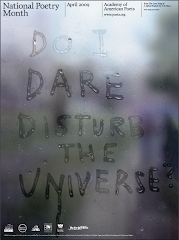In “The New Advocacy and the Old,” Gertrude Himmelfarb asserts that personal experience and interpretation should be eliminated from classrooms. Interpretations of texts are inaccurate if the interpreter is central to them, and readings of texts which consider the backgrounds and current situations of the readers are too autobiographical and not objective enough. Himmelfarb believes that texts should be taught based on what is found within them rather than on the context of the reader. She argues that the “ideology of Moi” (pg. 87) should be replaced with the traditional method of assessment which places little value on the reader.
Terry Eagleton explains how English became an academic course of study in his essay “The Rise of English.” The basis of his argument is that literature replaced religion, to a degree. In Victorian England, there was a spiritual and moral crisis, which led to a heightened sense of the value of literature as experiential and emotional. Studying literature became a way of studying all subjects, most importantly society, history, and spirituality. The original idea that literature made scholars good people was overly idealistic, but the value of literature as an exploration of humanity was recognized then and remains important now.
Subscribe to:
Post Comments (Atom)















No comments:
Post a Comment